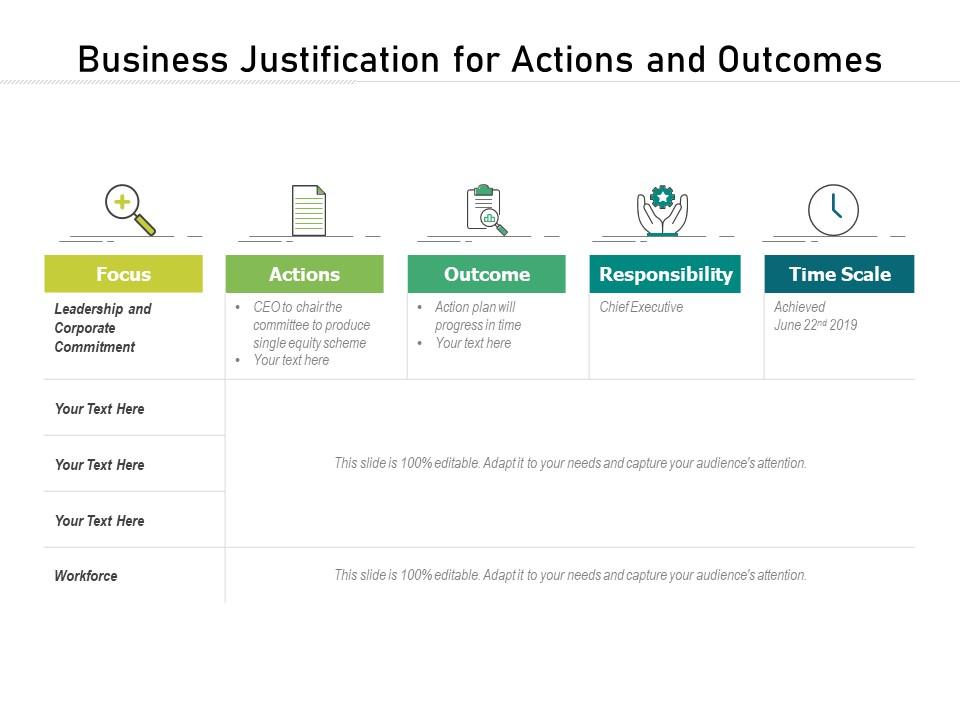One of the pillars for the project’s execution is the business justification (also known as the business case or business reasoning) that is created. This tool evaluates upcoming projects’ feasibility, cost-effectiveness, and purposefulness, assessing their short- and long-term success chances. The project’s business case aids stakeholders in making and defending decisions that will impact the project’s execution. There are various advantages to business justification. This is a crucial component of the project charter, the fundamental document that starts the project. The business rationale, at the very least, outlines the project’s anticipated outcomes and guides the project team.
This essay is aimed at divulging everything about business justification, its advantages, and a lot more. To learn more, keep reading.
What is Business Justification?
Business justification refers to the requirements that exclude specific sales justifications and the requirement for assessment before sale approval.
A business case justifies a project or activity, enabling organizations to assess its viability, reasonability, and purpose.
Presenting a business rationale is crucial, as it is to provide precise, fact-based information about why a project should proceed before the business case is approved. Never move forward with a project until it has been proven to benefit the company. The implementation of this reasoning process at various stages throughout the project is also crucial for achieving optimal results.
The Function of Business Justification
A business justification is a comprehensive and persuasive argument that demonstrates the project’s benefits and the financial gain the organization expects from the investment. The proposed solution is designed to be practical and efficient, ensuring it aligns with the organization’s broader aims and objectives.
The project team follows a business justification that outlines the project’s goals, deliverables, stakeholders, and scope. It also aids in identifying potential hazards and emergencies and provides a strategy for reducing them.
Securing the project’s essential resources—including financing and staff—also helps. A project’s strong and convincing case is more likely to be approved and allocated by stakeholders like senior management and investors.
A business reason also contributes to a well-planned and executed project by offering a quantifiable and explicit set of goals and advantages, together with a thorough implementation and governance strategy.
Also, the business justification provides a roadmap for the project, outlining necessary actions and potential benefits for the company.
A Sample Business Justification Structure
Usually, a business rationale consists of the following sections:
An executive summary is a condensed version of the business case that highlights the main issues, opportunity, suggested course of action, estimated costs and benefits, and problem or solution.
Problem or Opportunity:
The project aims to address a specific issue or potential, highlighting its impact on the company and the necessity for a solution.
Proposed Solution: An explanation of the suggested course of action, comprising the goals, deliverables, and scope of the project.
Project Costs: An in-depth analysis of anticipated costs, including material, labor, and any other resource costs.
Project Benefits:
The project’s anticipated benefits, including operational and financial aspects, are thoroughly evaluated to determine their alignment with the company’s overall objectives.
Risk and Contingency: An explanation of the project’s possible risks and contingencies, together with a plan for reducing them
Implementation and Governance: A summary of the project’s implementation strategy, including deadlines, checkpoints, and important players.
The business case’s main points—the opportunity or problem, the suggested solution, the estimated costs and benefits, and the suggested course of action—are outlined in the conclusion.
Appendices: Extra data and supplementary materials, including market research, financial forecasts, and regulatory analyses.
The organization, project, and audience all play a crucial role in shaping the form of a business justification. However, the majority of business justifications should contain the components listed above.
Advantages of Business Justification
Developing a business case for a project has various advantages, such as:
Alignment with organizational goals and objectives:
A business justification aids in ensuring that a project is in line with the organization’s overall goals and objectives by providing a clear description of the opportunity or problem the project solves as well as the anticipated benefits.
Getting resources in place:
A well-written business justification can effectively secure the necessary cash and staff for a project by presenting a convincing case.
Finding probable dangers and backup plans:
A business justification provides an outline of a plan for managing potential risks and contingencies related to the project.
Enhancing project planning and execution:
A business rationale ensures a well-planned and executed project by providing precise goals, benefits, and a comprehensive implementation and governance strategy.
Putting the project’s worth forward:
A business justification outlines the expected costs and benefits and illustrates the prospective return on investment (ROI) for the organization. And also demonstrating the value of the project to the organization.
Stakeholder communication:
A business rationale gives stakeholders a clear knowledge of the project’s aims, objectives, and anticipated results by acting as a communication tool between the project team and them.
Assessing the project’s performance:
A business rationale is used as a standard to assess the project’s performance and ascertain whether its goals were achieved and the anticipated results were obtained.
Enhancing decision-making:
A business rationale aids in decision-making by offering a thorough and transparent examination of the issue or opportunity. It also suggests courses of action, estimated costs and benefits, risks, and backup plans.
The Limitations of Business Justification
The process of developing a business case for a project has various drawbacks, such as:
Uncertainty: Future assumptions and projections are also the foundation of business reasoning. The project’s result may be impacted by changes in the market, economy, or other external circumstances, which could cause these assumptions and projections to prove to be incorrect.
Restricted perspective: The project team usually develops business justifications, which may result in prejudices and a limited perspective. An incomplete or wrong assessment of the issue or opportunity, the suggested remedy, the anticipated costs and benefits, and the risks and contingencies may arise from this.
Lack of flexibility: It can be challenging to alter a project’s scope, objectives, or deliverables once funding has been committed. This may result in a lack of adaptability while handling unforeseen problems or seizing fresh chances.
Time-consuming: The business justification process takes a long time and necessitates a large outlay of resources, including the project team’s time and other stakeholders’ knowledge.
Limited attention to implementation: The business justification process may place too much emphasis on the project’s initial design and not enough on its actual implementation and execution. This may result in disregarding the specifics needed to ensure the project’s success.
FAQs
What Does a Justification Look Like?
a cause, instance, situation, or justification that supports or upholds: There was more than enough reason for you to leave the party after he insulted you. an act of defense I wasn’t impressed by the painter’s explanation for why he couldn’t finish on time.
What Basis Does the Business Case Have?
The purpose of a business case is to justify the start of a project, program, or portfolio. It also assesses the advantages, disadvantages, costs, and risks of several options and justifies the chosen course of action.
What Term Is Used Instead of “Justification”?
Justify is frequently synonymous with asserting, defending, sustaining, and vindicating. All of these terms mean “to uphold as true, right, just, or reasonable,” but “justify” refers to demonstrating truth, justice, or validity through reference to a standard or earlier ruling. The deed served as justification for military intervention.
Wrapping Up
Hence, the purpose of a project is demonstrated by business justification. It explains the necessity of the project. Justification based on business principles guides all project-related decision-making. Thus, it’s critical to evaluate a project’s feasibility and achievability before making any major early commitments and investments, as well as to confirm the business case for continuing the project into its later phases.
Also, Read



